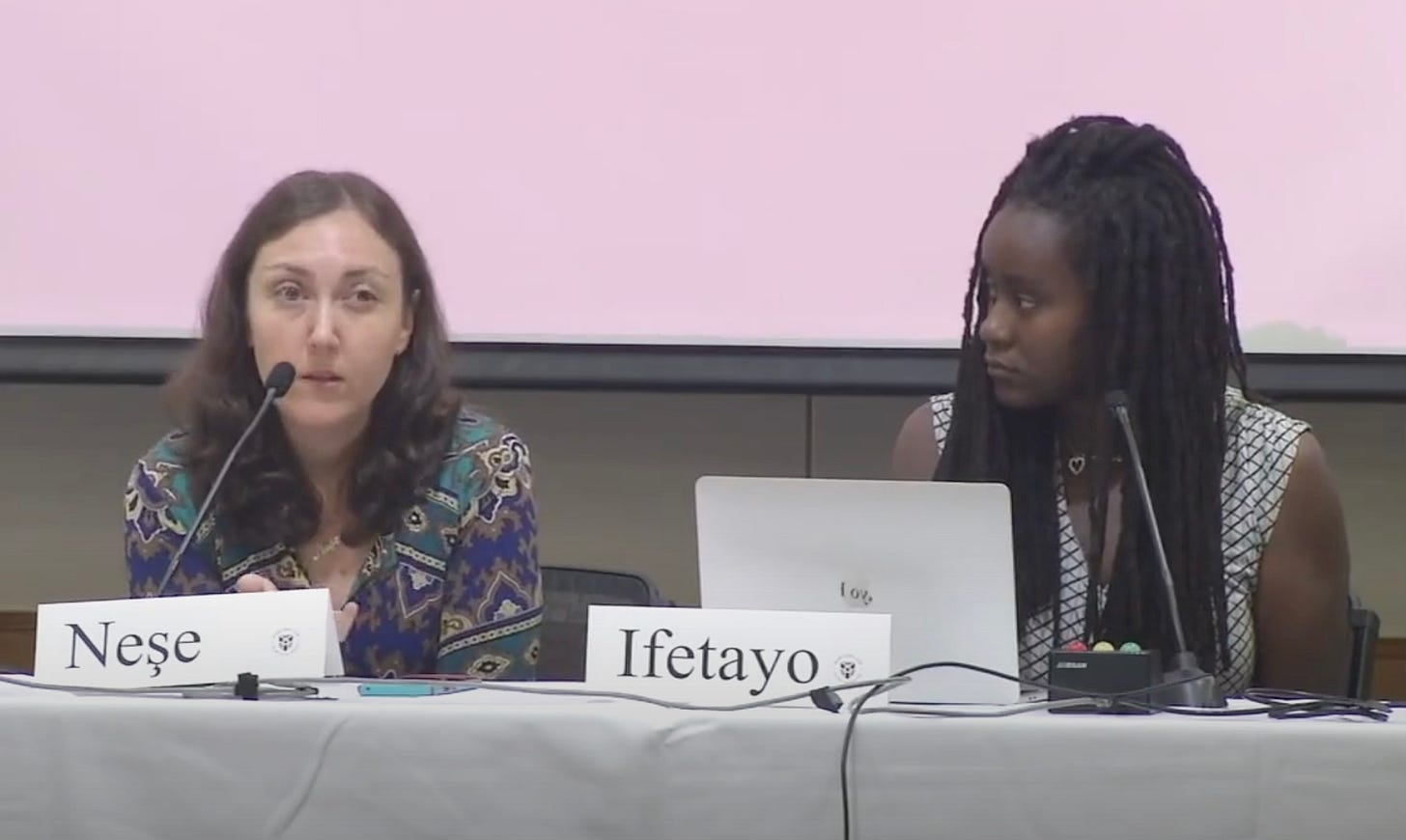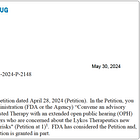SXSW 2025 (Part 1): The Lead-Up
In March, I returned to the conference that had sparked my plans to oppose MDMA-assisted therapy last summer. This is Part 1, about a June 2024 event at Harvard that led to my second SXSW invitation.

Back in March, I traveled to Austin for my second panel on the psychedelics track at SXSW. The lead-up to this panel was intense: the New York Times had just published a hit piece that named me 17 times, which led to a new wave of harassment and retaliation for my work. This year, it seemed like the psychedelics track roster at SXSW included more people who were opposed to me than not. It felt like this would definitely be an “away game” crowd.
I felt a lot of dread about going, frankly. But ultimately, I felt a responsibility to continue informing people about the influence of therapy cults and pseudoscience on the psychedelics industry. Despite very heavy reservations, my position has been unchanged since last summer: this conversation is too important to give into threats and intimidation.
I was also excited about discussing this topic with my specific co-panelists, in particular: Matthew Johnson and Barine Majewska. I didn’t know Barine yet, when Matt reached out to invite me to the panel last July.
Matt had been an early supporter of my psychedelic humanities work while I was still a graduate student. He came to the University of Pennsylvania to speak at the first Psychedemia conference in 2012, and he offered to work with me on a qualitative reanalysis of his 2014 pilot study of psilocybin for smoking cessation. (The resulting paper — “Psychedelic Identity Shift” — was published in the Kennedy Institute of Ethics Journal in 2022.)
We reconnected last summer during the Petrie-Flom Center 2024 Annual Conference on Law and Policy of Psychedelic Medicine, which was held on June 25 at Harvard Law School. This event took place during the tense weeks after the FDA’s independent advisory committee voted against Lykos’ MDMA-assisted therapy application on June 4, and mere days after Heroic Hearts launched an aggressive campaign that targeted me by name.
Like me, Matt had been writing about concerns with psychedelic exceptionalism and cultic dynamics in the field. While we’d been focusing on experiences with different group, there was significant overlap between our perspectives.
Matt was also the first person I’d spoken to about my critique of the MAPS therapy who was already familiar with the research literature on Facilitated Communication (FC) as pseudoscience. (I later published a commentary on this analysis in The American Journal of Bioethics.) For the first time, I could tell that someone really understood what I was trying to say.
During these discussions, it seemed significant that Matt and I were seeing similar problems in different parts of the field, and the connections between these disparate contexts became a focus of our later panel at SXSW. And as I began writing about SXSW, I realized that my earlier presentation at Harvard Law School provided important context, so I decided I’d turn this recap into multiple posts.
Here in Part 1, I’m including a video with excerpts from the Petrie-Flom Center conference panel where I was co-presenting with Ìfẹ́táyọ̀ Harvey. (The full panel recording is available on the Petrie-Flom Center’s YouTube channel.) Below the video, I’m also including most of the text of the transcript. Part 2 — about SXSW proper — will be soon to come.
Video: Excerpts from “Interrogating calls for access and equity in the psychedelics industry”
Harvard Law School, Petrie-Flom Center, June 2024
Transcript:
I'm just going to continue there, by starting with the point that the psychedelic industry has been calling for the urgency of increased psychedelic access for minority groups. But access, we argue, is dangerous when harmful healing ideologies are so widely accepted and unexamined in the broader field. Psychedelic exceptionalism, as defined by Matthew Johnson, is one of the greatest sources of harm that I have been seeing. It overlooks the danger of psychedelics as "cultogenic"—they have an explicit history of giving rise to cultish groups.
In Matt's definition, he says that the belief that psychedelics are so sacred and important that the normal rules of ethics and clinical practice do not apply. But this is paired with insufficient attention to the fact that during decades in the underground, many of these groups were insulated from outside scrutiny of their practices. Many of those practices are already associated with predictable patterns of harm that will disproportionately impact vulnerable groups if they scale with endorsement from government regulators.
To address these risks, we have to pay attention to abuses of power in the field itself. We need to change the field's norms so that people with important perspectives can come forward. To help illustrate what I mean, I'll very quickly share some of my experiences of challenging Lykos' application at the recent FDA advisory committee meeting, where Ìfẹ́táyọ̀ also spoke.
In my analysis that I submitted to the FDA, I argue that MAPS qualifies as a therapy cult with an overly rigid healing ideology. The full analysis is on my substack, in a post titled, "MAPS is an MDMA therapy cult," if you'd like to know more about the details.
I presented evidence that MAPS obscured its actual therapy protocol from regulators, and that this undisclosed protocol introduces unexamined and unnecessary risks. The takeaway is that MAPS's healing ideology encourages boundary violations, and it introduces a vocabulary that invalidates participant articulations of harm. This creates a high risk of retraumatization, especially for those with trauma related to invalidation, including racial and ethnic minorities, LGBTQ+ individuals, and people who have experienced sexual assault and coercive control.
In the week after I submitted my analysis to the FDA, three separate predictions that I made based on close reading descriptions of their healing ideology were confirmed. Multiple participants told me my analysis validated their experiences of harm. They shared that MAPS-trained therapists had conditioned them to believe that they were at fault for new traumas that those therapists caused.
So far, the broader field has not acknowledged these risks in the post-Advisory Committee commentary. But a few days ago, I was singled out in an open letter published by multiple veterans groups. These groups have received significant funding by the Psychedelic Science Funders Collaborative.
The letter, which is full of inaccuracies, includes [quote]: “Ms. Devenot and her colleagues at ICER and Psymposia have successfully manipulated the media and infiltrated the FDA’s regulatory process to the detriment of millions.... [They] may single-handedly dash the hopes of thousands of veterans who continue to take their own lives due to their suffering from PTSD."
Today, writing in Ecstatic Integration, Jules Evans identified how this rhetoric is dangerous:
He wrote [quote]: "This PR strategy...is pretty unpleasant in its targeting of one woman…. It might even be unsafe, if you’re telling desperate and occasionally armed veterans this woman is wishing you hate and perpetuating your suffering." [end-quote]
Nonetheless, the open letter was shared by major funders in the psychedelic industry, including Tim Farriss, Steve Jurvetson, and David Bronner. Many of these investors are associated with the Psychedelic Science Funders Collaborative. At least one of them even funded POPLAR, here at Harvard's Petrie-Flom.
This is ultimately why I spoke up—because people are afraid. Because the industry has a history of making examples out of people who talk about harm. That is why I needed to be a proxy for whistleblowers in the first place. And ultimately, it should not be on individuals to [have to] deal with these dynamics [on their own]. The field can speak up, and not require me to take [on] all of this threat to my personal safety.
Ethicists can help by acknowledging the validity of [even] part of my analysis, for example, and actually addressing it — rather than focusing on the easier-to-excuse aspects [of the FDA advisory committee's concerns], like "functional unblinding." And I think that the more that we do that, the more that we'll have other perspectives to drive the field forward in a way that is not putting the greatest harms on the most vulnerable patients. Thank you.
[Responding to a question about whether privately addressing concerns might be better than going public:]
Ultimately, I have been doing my critical work for very many years. And I needed to start becoming [a critical scholar]— I studied, in the beginning I wanted to study trip reports. I'm a literary scholar. And I have things that I would rather be doing with my time, frankly, than talking about these critical safety issues. But I've noticed over the years, trying to raise these issues privately, that I was — and other people who also tried to speak up — were systematically marginalized and excluded from the conversations.
And so, for the field to look at those who have been excluded and marginalized — [we’re] speaking up at a very high-stakes time, when there’s an attempt to scale these practices, and trying to say ‘it's important that we do this right, from the beginning, because we might not get a second chance.’ I think that that’s completely valid, given the circumstances. But I do [also] speak in private, but those conversations haven’t been public [by definition]. You know, I definitely tried that [first].
[On the field's hostility to critique:]
Right now, [people who have experienced harm who come forward] are seen as threats to the millions of veterans whose blood will now be on their hands, explicitly. Whereas the field that I want to build thanks those people for coming forward. 'Thank you for sharing! You have helped us—' Like with looking on the beach for metal— 'You helped us find something that we can actually make safer, so that this doesn't need to happen again.
And that is an overlooked component of healing. Because when people are able to take their suffering and their distress and do something meaningful with it, to make the world safer for others, that can help them process their experience as well. And we're currently [as a field] overlooking that whole aspect to healing.








"therapy cults and pseudoscience"
An immense problem with the entire collection of psychedelic insiders and experts is that they haven't a clue about how psychedelics work. See my Awakenings series, especially parts IV - VI
https://peterwebster.substack.com/p/awakenings-iv
I met Tim twice